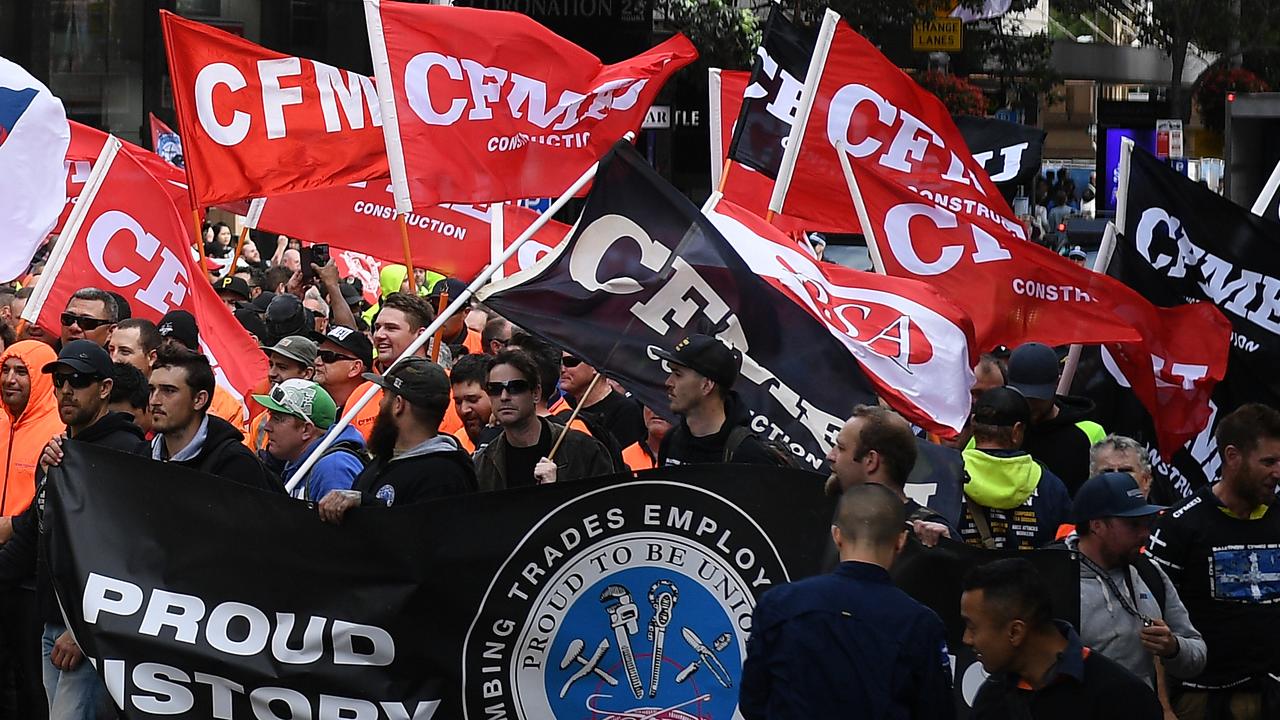AWU fights $44m Esso strike payout
Esso Australia is seeking $44.3m in compensation from the Australian Workers Union, over unprotected industrial action.

Esso Australia is claiming $44.3 million in compensation from Bill Shorten’s former union, the Australian Workers Union, over unprotected industrial action the company says hindered its ability to produce oil and gas.
Details of the compensation claim emerged in a Federal Court judgment handed down by judge Michael Wheelahan on Christmas Eve in Melbourne.
Esso has filed claims for compensation and penalties against the AWU, alleging the unprotected industrial action by employees delayed the scheduled restart of the Longford plant in Victoria by 14 days following a planned maintenance shutdown in March 2015.
Esso alleges the industrial action impaired the ability of its joint venture with BHP Billiton Petroleum to produce oil and gas.
Justice Wheelahan said Esso was claiming compensation for lost revenue for the joint venture of $44.31m plus interest.
Lawyers for the AWU reserved the right to argue whether the court could order compensation be paid to BHP Billiton Petroleum.
AWU Victorian secretary Ben Davis said yesterday the union would oppose the claim. He said Esso was also proceeding with a bid to terminate the enterprise agreement covering the workers, with four days of hearings scheduled in the Fair Work Commission in February.
In a blow to the AWU, the High Court ruled last year that unions were restricted from taking legal strike action if they had breached orders of the commission.
In 2015, during negotiations for a new enterprise agreement, the AWU organised industrial action against Esso which it claimed was protected industrial action.
Esso obtained an order from the commission requiring the AWU to stop organising certain forms of action. The union continued to organise action in contravention of the order.
A majority of the High Court held the requirement in the Fair Work Act for compliance with orders was not confined to orders in existence at the time of the proposed protected industrial action.
The majority held the act applied to past contraventions of orders and therefore the AWU had failed to meet the legal requirement for its subsequently organised action to qualify as protected industrial action.
Employers hailed the High Court judgment as a “test case” that would prevent unions from using industrial action to “cause havoc” on business.
In his Christmas Eve decision, Justice Wheelahan ruled that the AWU should make discovery of documents relating to the industrial action in 2015.
He said Esso’s claim for compensation was “very substantial”.
“Of course, at this stage of the proceeding the claim is untested but I shall proceed on the premise there is a proper basis to advance the claim, and counsel for the (AWU) quite properly did not suggest otherwise,’’ he said.
Union solicitors told the court a review of 42,295 electronic documents supplied by the union to its lawyers would take one solicitor about 15 weeks to complete.
Justice Wheelahan said he did not give much weight to AWU claims the discovery sought by Esso was oppressive, given union lawyers would have to examine a great number of documents: “The affidavit evidence of the respondent’s solicitor concerning the volume of documents that may need to be examined, and the likely time that would take, does not persuade me the discovery burden is disproportionate, oppressive, or otherwise not warranted.”




To join the conversation, please log in. Don't have an account? Register
Join the conversation, you are commenting as Logout